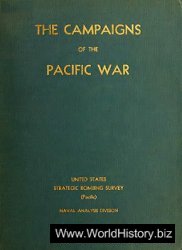Sir Wilfrid Laurier (he had been knighted at the Queen’s Diamond Jubilee in 1897), the man who voiced Canada’s claim to the twentieth century, was the first Frenchspeaking Canadian to become Prime Minister. His Liberal party, after decades of fruitless struggle in Quebec, had finally discovered a winning formula; the lustre of a native son, good organization, and moderation in policy. Laurier, bilingual, courtly, and handsome, won widespread admiration in English Canada, too. Where once he had seemed too French in defending Riel, he had grown into a “true” Canadian, willing to bask in the glow of the declining imperial sun, unwilling to press too hard for Roman Catholic and French-language school rights. But behind the charming and elegant exterior, more elegant as the silver of his shoulder-length hair grew to match his silver-tongued oratory, was a shrewd mind and a tough will.
In 1896 Laurier had formed a talented Cabinet, bringing in powerful representatives from each of the regions. He knew that talent and ambition went hand in hand, and was ready to ride herd with skill and firmness. The key to Laurier’s success, as it had been with Macdonald before him, was his ability to bring men—since no woman voted, let alone sat at the Cabinet table, before 1917—representing different interests together and to make them work as a team. Of special importance to Laurier was harmonizing the interests and sentiments of French and English Canadians. And as the country grew, the task increased in complexity, because regional demands joined ethnic tensions, religious rivalries, and class conflict. For fifteen years Laurier proved himself the unrivalled master of a turbulent political scene. But by 1911 even he could no longer keep command.
During the early years of his term of office, Laurier’s chief problems were associated with relations between French and English Canadians. Elected on a platform which promised that “sunny ways” could resolve the crisis over separate schools in Manitoba, Laurier hoped he had laid this matter to rest in 1897; the hope proved unfounded. In 1905, a new quarrel broke out over the extent to which the legislation establishing

Saskatchewan and Alberta should guarantee Roman Catholic and French-language rights. The outcome of the struggle was that the western minorities obtained only minimal protection, and Laurier lost Sifton and the trust of many English Canadians and even some French Canadians.
Prime Minister Wilfrid Laurier (1841-1919) in 1900. Laurier was renowned as a skilful compromiser and conciliator; one journalist wrote that he “had affinities with Machiavelli as well as with Sir Galahad.” Sculptor Walter Allward was just twenty-five when he completed this bust.
More divisive than the issue of minority rights was the sensitive problem of Canada’s responsibilities as a member of the British Empire. The Boer War and the controversy over Canada’s participation in it had raised the storm signals. Henri Bourassa, grandson of Louis-Joseph Papineau, the rebel leader of 1837, though elected as a follower of Laurier in 1896, refused to support his leader’s compromise policy on South Africa. Bourassa then set out to warn Canadians, especially French Canadians, of the dangers of imperialism. Equally dangerous, he believed, was Laurier’s refusal to set out exactly the nature of Canada’s relationship to Great Britain. Associating himself with a group of young nationalists in La Ligue Nationaliste Canadienne, Bourassa set himself up as the chief spokesman for French-

Surrounded by his wife and children, Henri Bourassa, the stern founding editor of Le Devoir, could forget the failings of Liberals and the schemes of imperialists. He is seen here celebrating his tenth wedding anniversary, on September 4, 1915, at his summer retreat at Ste-AdHe.
Language minorities, for resistance to Canadian participation in imperial wars, and as a critic of what he thought was the excessive urban and industrial development of Quebec. He was a formidable foe, one both feared and admired by Laurier, who knew that, at least on imperial questions, Bourassa spoke for French Canadians. And Bourassa’s close association with the leaders of the church in Quebec raised in Laurier’s imagination the spectre of a revival of the clerico-nationalism that he had fought in the years before 1896.
While Quebecers sympathized with Bourassa’s contention that Canada should not be called upon to fight the Empire’s wars outside North America, English Canadians identified Canada’s interests with the Empire. Many English Canadians were therefore eager to assert the country’s nationhood through active participation in imperial affairs. “There is no doubt the age of Imperialism has come,” a young Mackenzie King wrote at the height of the Boer War fever. “We will see (perhaps in twenty-five years) an Imperial Assembly of some kind at Westminster. The greatest of the world’s known federations.” Laurier, whose personal views were naturally those of a Erench Canadian, knew that the unity of the country, and the continued success of his party, depended on avoiding issues that would bring the French - and the English-Canadian views into direct conflict. Consequently, he devised a strategy that combined evasive rhetoric with a determination to avoid commitment to schemes that involved common imperial defence projects or any hint of centralized imperial policy-making. His critics at home were thus frustrated by the ambiguity of Laurier’s policy. “Waffley Wilfy,” Bourassa disparagingly called him; some English Canadians thought “Sir Won’tfrid” more appropriate.
The difficulty of achieving a consensus among Canadians about their country’s place in the Empire only became fully evident when the tension between Great Britain and Germany intensified after 1909. As Great Britain, particularly in the sensitive area of naval supremacy, found itself seriously challenged by Kaiser Wilhelm’s expanding fleet, pressure was put on the dominions to assume a larger role in imperial defence. That request was reasonable enough, since the dominions actually benefited from the defence system. For some Canadians, including most French Canadians, the proper response was simple: develop a united, economically strong Canada and, if necessary, increase Canada’s domestic defences. Canada’s contribution to the security of the Empire would be the defence of Canada. But many English Canadians disagreed. For them the best protection for the Empire would be a common imperial military system with each of the dominions making a direct Contribution to it. To that was often added the assertion that Canada should have a voice in the determination of imperial policy.
In 1909 the crisis in Anglo-German relations made it impossible for Laurier to temporize any longer. Its hand forced by Opposition demands, the government brought forward a Naval Bill that provided for the establishment of a small Canadian navy which, in times of crisis, could become part of the imperial navy. This compromise satisfied almost no one. In Quebec, Henri Bourassa and his growing following denounced the scheme as a commitment of Canadian ships and men to automatic involvement in every imperial war. Conscription of Canadians would soon follow. In 1910, with some assistance from Quebec Conservatives, Bourassa established a daily newspaper, Le Devoir, for the explicit purpose of defeating Laurier’s naval plans. In much of English Canada, the Laurier navy was denounced as too little and too late— a “tin pot” navy. If the Empire faced a crisis, the best policy would be a direct financial contribution to Britain for the construction of additional “dreadnoughts,” a powerful new type of battleship. Robert Borden, the leader of the Conservative party, espoused this view, adding that these emergency measures should be followed by a permanent policy that would include a recognition of the right of the dominions to participate in the making of imperial policy. After an acrimonious debate, Laurier’s Naval Bill was enacted, but the emotions aroused and the deep divisions created by the debate did not dissipate. Instead, they were carried over into the controversy that soon arose over relations with the United States.
Canadian-American relations in the early twentieth century moved from bad to better, and then to a crisis. The most difficult issue that had to be faced by the Laurier government was a long-standing dispute over the border between Canada and Alaska. In 1903, a commission composed of three Americans, two Canadians, and one representative of Great Britain was established to adjudicate the question. With President Theodore Roosevelt’s “big stick” not very well hidden, the commission handed down a decision which favoured the U. S. claim, the British commissioner having sided with the United States. The result infuriated Ganadians, their ire being directed against both the United States and Great Britain. Relations with the United States improved over the next few years, and several disputes, some dating back to the previous century, were settled. But there remained a lingering distrust that could be aroused on the appropriate occasion. That occasion came in 1911 when the Laurier government announced that an agreement had been reached on a reciprocal trade deal with the United States.
If the Liberal government’s naval policy had left it open to the charge that it was insufficiently loyal to the Empire, the new trade agreement made the charge more plausible, especially to those whose economic interest seemed threatened. The initiative for another try at a freer trade arrangement had come from the United States, when President Taft was attempting to fend off growing protectionist sentiment. Taft’s negotiators then proposed a broad free-trading arrangement. The Canadians, caught somewhat off guard by the proposal, agreed to it. Laurier and his ministers saw the new agreement, providing free trade in natural products, and lower tariffs on a broad range of manufactured goods, as a solution to several political problems and also an attractive economic offer. In the prairie West, farmers had grown increasingly unhappy with Ottawa’s tariff policy, which benefited Canadian manufacturers at the farmer’s expense. Reciprocity in natural products with the United States, while it did not greatly reduce the cost of manufactured goods, would at least give Canadian farmers easier access to the U. S. market. In this way, the Liberals hoped to undermine the farmers’ complaints. So, too, the Liberals hoped that the heat of the naval debate would be dissipated by the introduction of the trade issue in a form which they believed would meet the approval of every region of the country.
At first this calculation seemed accurate. The trade agreement caught the Conservatives completely by surprise. But Borden soon recovered, after being prompted by several provincial premiers, notably James Whitney of Ontario. The trade proposals were now turned against the government as further evidence of “disloyalty” to the Empire. As the Opposition stalled the parliamentary debate, Laurier decided he had found a popular issue. A late-summer election was called.
As events proved, the new trade agreement, while welcomed in some parts of the West, was not the winning issue that Laurier had expected. The Conservatives played upon the fears aroused in the country’s industrialized areas that the agreement was only a beginning. Once implemented, it would so alter the east-west pattern of trade that free trade in manufactured goods would be the next necessary step, and that would mean flooding the Canadian market with cheap American goods, the destruction of local industries, rising unemployment, and perhaps even annexation to the United States. When these threats were added to the attacks on the Liberals’ naval policy, an issue that remained central to the campaign in Quebec, the Opposition gained the offensive. They were aided by the indiscretions of a few American politicians who spoke openly about the prospects of annexation, so that the Liberals found it increasingly difficult to focus on trade rather than on loyalty. “Shall we give up...
The glorious future which beckons us—the chance that we shall become the chief state in the British Empire and the most powerful nation in the world?” one Conservative newspaper asked emotionally. “Shall we bring the sacrifices of the Fathers [of Confederation] to naught?”
The Liberals collapsed under this barrage, one mounted by a powerful new Conservative-party organization composed in part of a group of dissident Toronto Liberal businessmen, led by Clifford Sifton, who denounced the trade proposal and its authors. These men, whose business interests had at last prospered under the protective policies that Laurier had inherited and strengthened, formed the hard core of the anti-Liberal campaign. And while this campaign plucked the strings of pro-Empire, anti-American sentiment in English Canada, Laurier’s Quebec fortress was also brought under siege. There the Conservatives left most of the campaign in the hands of Henri Bourassa, who supported a group of autonomistes whose attack focused on the claim that Laurier’s naval policy represented a betrayal of Canadian interests in favour of the Empire. “It is time for the people of the Province of Quebec to prove to M. Laurier that if they admired him when he served the interests of the country well, today he has prevaricated, today he has duped us,” one nationalist claimed.
The walls of fortress Quebec were breached in the September vote. For the first time since 1891, the Opposition—the Borden-Bourassa alliance—won 40 per cent of the seats. In Ontario, the dispirited Liberal troops were utterly routed. Aided by defecting Liberals and Premier Whitney’s powerful provincial organization, Borden carried 85 per cent of the seats. Reciprocity was dead; Laurier’s Canadian navy mothballed. Robert Borden finally found himself called upon to form a government—and to solve the problems debated, but not resolved, in the election campaign.




 World History
World History



![Black Thursday [Illustrated Edition]](https://www.worldhistory.biz/uploads/posts/2015-05/1432470149_1431513568_003514b1_medium.jpeg)





